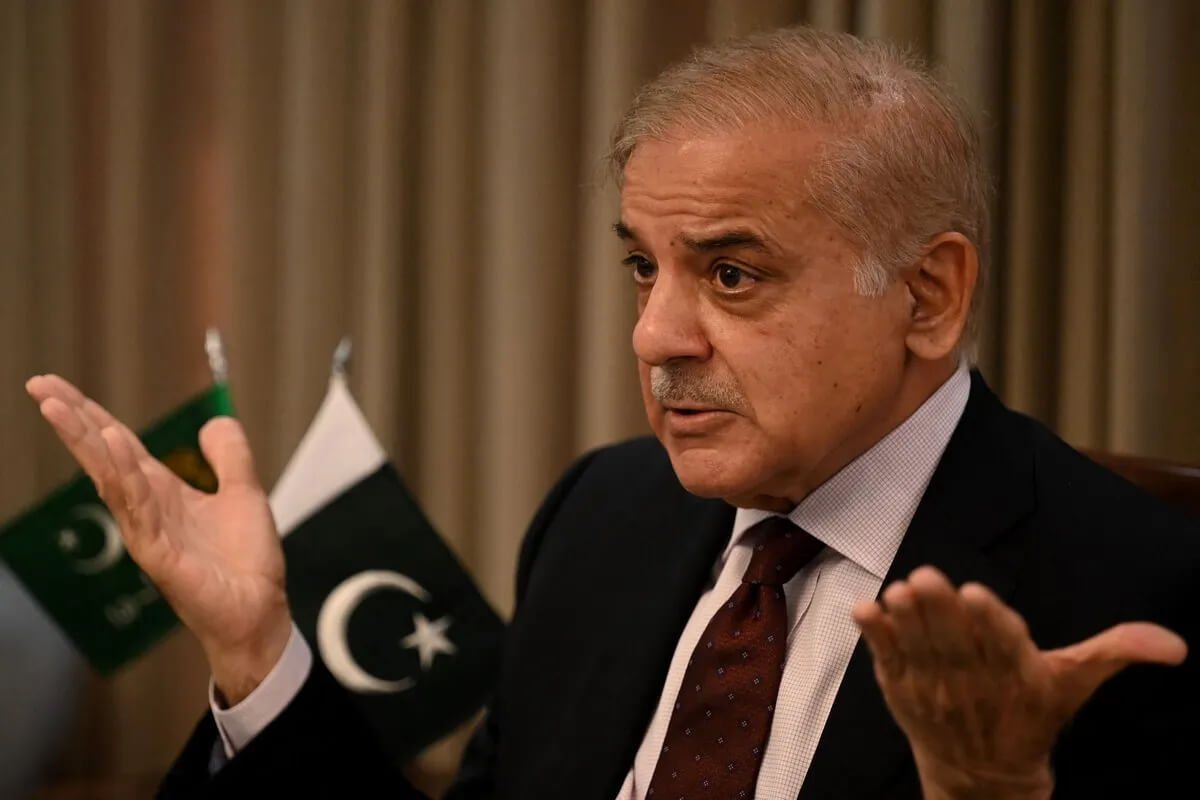As Pakistan struggles to meet the terms of the International Monetary Fund (IMF) bailout package, Prime Minister (PM) Shehbaz Sharif said that the country has been “economically enslaved” by the organisation since gaining independence in 1947.
Nevertheless, he sought to reassure citizens that the country is “on the right track” to reduce its current account ($17.4 billion) and budget deficits, lower the inflation rate (24.9%), address its foreign reserve shortage ($14.2 billion), and increase the value of its currency. He warned, however, that the country must be prepared to face “bad days.”
The government is able to decrease the price of petrol by Rs 3.05 per litre. The price of diesel has however gone up by Rs 8.95. These prices are effective from midnight August 1. Pakistan Zindabad pic.twitter.com/YQGp9bYiss
— Miftah Ismail (@MiftahIsmail) July 31, 2022
He attributed much of the country’s economic woes to his predecessor, Imran Khan, saying his government had increased the budget deficit from $7.4 billion to $11.5 billion and foreign loans by 80%. He noted that this has forced Pakistan to “literally beg” other countries for financial assistance.
Pakistani authorities finalised a staff-level agreement with the IMF last month, after agreeing to remove fuel and power subsidies and raise taxes to raise increase government revenue.
Rupee continues to gain strength. Let’s hope #Pakistan close the bilateral and multilateral deals to come out of the woods at the moment.
— Nadeem Malik 🇵🇰 (@nadeemmalik) August 5, 2022
The long-term goal should clearly remain to live within means. No IMF or costly bilateral bailouts.
Earlier this week, IMF’s resident representative for Pakistan, Esther Perez Ruiz, announced that Pakistan had increased its petrol development levy (PDL) and completed the last precondition to facilitate the revival of the bailout programme.
In order to meet the conditions for the release of the funds, the finance ministry has raised the PDL by Rs 10 ($0.045) on petrol and Rs. 5 ($0.22) on high-speed diesel, kerosene, and light diesel oil.
The government also plans to revise its current 15-day review process and convene to assess petrol prices every week. This is another precondition put forth by the IMF to ensure that Pakistan is adequately responding to fluctuations in the international market.
1/3 #SBP and MoF has issued a joint press release stating 5 important facts about Pakistan's Strategy for Navigating FY23. 1) Pakistan’s problems are temporary and are being forcefully addressed. 2) Pakistan’s gross financing needs will be more than fully met under IMF program.
— SBP (@StateBank_Pak) July 31, 2022
The IMF’s Executive Board will meet at the end of August to determine whether or not to release the funds. However, Pakistan must first guarantee that its allies will provide $4 billion in funding in order to increase its foreign exchange reserves by $6 billion and show that it will not have a financing gap after securing the IMF loan. Pakistan has reportedly approached Saudi Arabia, the United Arab Emirates, and China for assistance.
Pakistan has also pushed the United States (US) to accelerate the process, with army chief Gen. Qamar Bajwa asking US Deputy Secretary of State Wendy Sherman to encourage the IMF to release the $1.2 billion package. In a similar vein, Finance Minister Miftah Ismail met with US Ambassador Donald Bloome in Islamabad in an effort to fast-track negotiations.
The IMF and Pakistan are seeking to finalise the release of the seventh and eighth tranches of a $6 billion Extended Fund Facility, which was secured by erstwhile PM Imran Khan in 2019. The release of the funds has been withheld due to the reluctance of both the Khan and Sharif administrations’ reluctance to remove fuel subsidies and raise taxes, though the incumbent leader later gave in to these demands.

